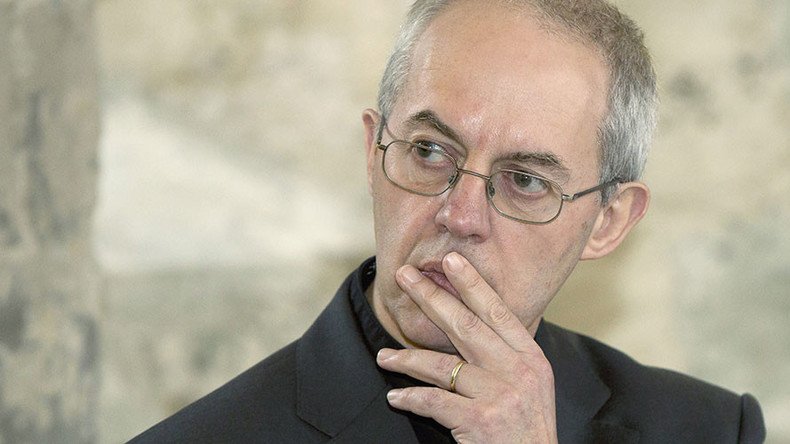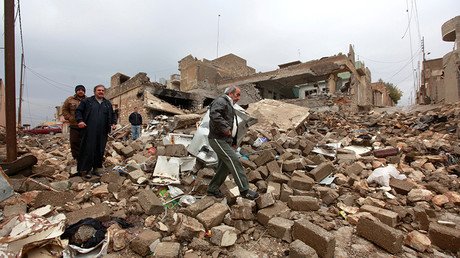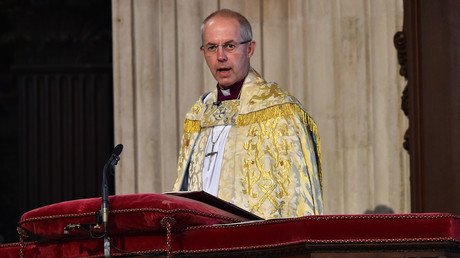Brexit & Trump signal return of ‘fascist tradition,’ says archbishop of Canterbury

Brexit and the election of US President Donald Trump signal the revival of nationalism and even fascism across the globe, the archbishop of Canterbury says.
In the opening address at the Church of England’s synod meeting in London this week, Archbishop Justin Welby said: “There are a thousand ways to explain the Brexit vote or the election of President Trump or the strength in the polls in Holland of Geert Wilders or in France of Madame Le Pen and many other leaders in a nationalist, populist or even fascist traditions of politics.”
While Welby has previously suggested Trump’s politics was based on fear and exclusion, his recent criticism went further by linking the US president with far-right leaders in Europe.
He went on to say there was no simple explanation as to how the new political landscape developed, but the “impact of globalization economically, or marginalization politically and of postmodernity culturally” played a role.
“[How the new political landscape developed] will be the material of a thousand PhDs and no consensus in the next 50 years. We are in the middle of it all and we see neither the destination nor the road we must travel,” Welby said, according to the Guardian.
He added that “whether one was a supporter of Brexit or of Remain, there is now a wide and liberal choice of future for this country.” He said while it would take “immensely hard work and heavy lifting,” it was a moment of potential opportunity to reimagine Britain.
The Church has a significant role to play, Welby said, despite its declining numbers.
“In the necessary reimagination of our country we cannot dictate, but we must participate. Participation means being a listening, suffering and reconciling presence, not a hectoring, self-interested one. The language of public life at present is deeply, savagely divided and may become worse.”
He went on to say his Christmas sermon had been “unpopular with some.”
The comment appears to refer to former UKIP leader Nigel Farage, who, shortly after meeting Trump, was scathing about the “negative” Canterbury Cathedral sermon.
In the sermon, Welby said the world was “less predictable and certain” and spoke of the “economies of despair.”
Last week, Welby ducked questioning on whether he would welcome Trump’s state visit to the UK, but said he would regard it as a privilege to speak to the president in order to try to change his views.
The opening day of the four-day synod was dominated by the issue of sexuality, with tensions between traditionalist and inclusive wings of the Church evident.
Gay rights campaigners argued to extend the time allocated to debate on Wednesday a report by bishops that upholds traditional teaching on marriage as a lifelong union between a man and woman.
The decision rests with Welby and John Sentamu, the archbishop of York, as the joint presidents of the synod.
There were also calls for extra debates on the government’s announcement that no more refugee children will be brought to the UK and on Trump’s executive order, known as the ‘Muslim ban’, which has now been suspended.














